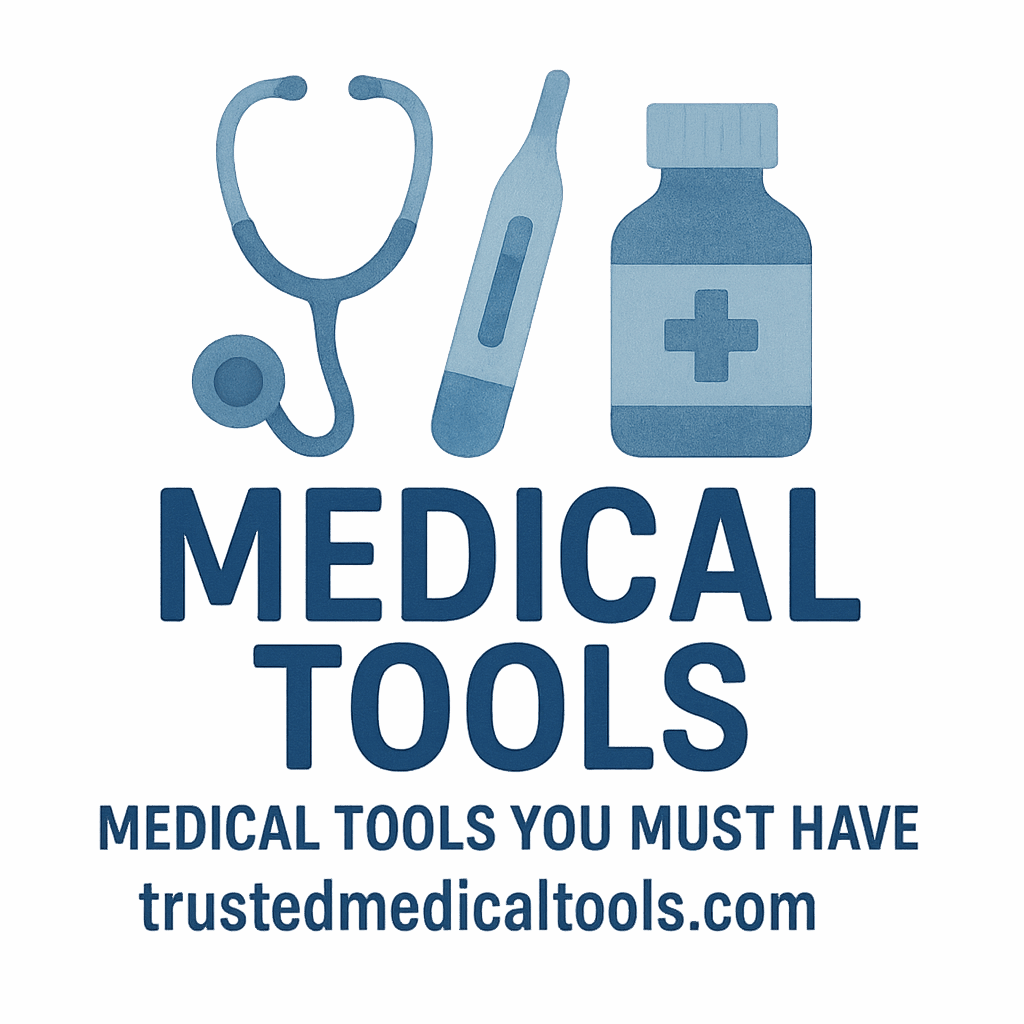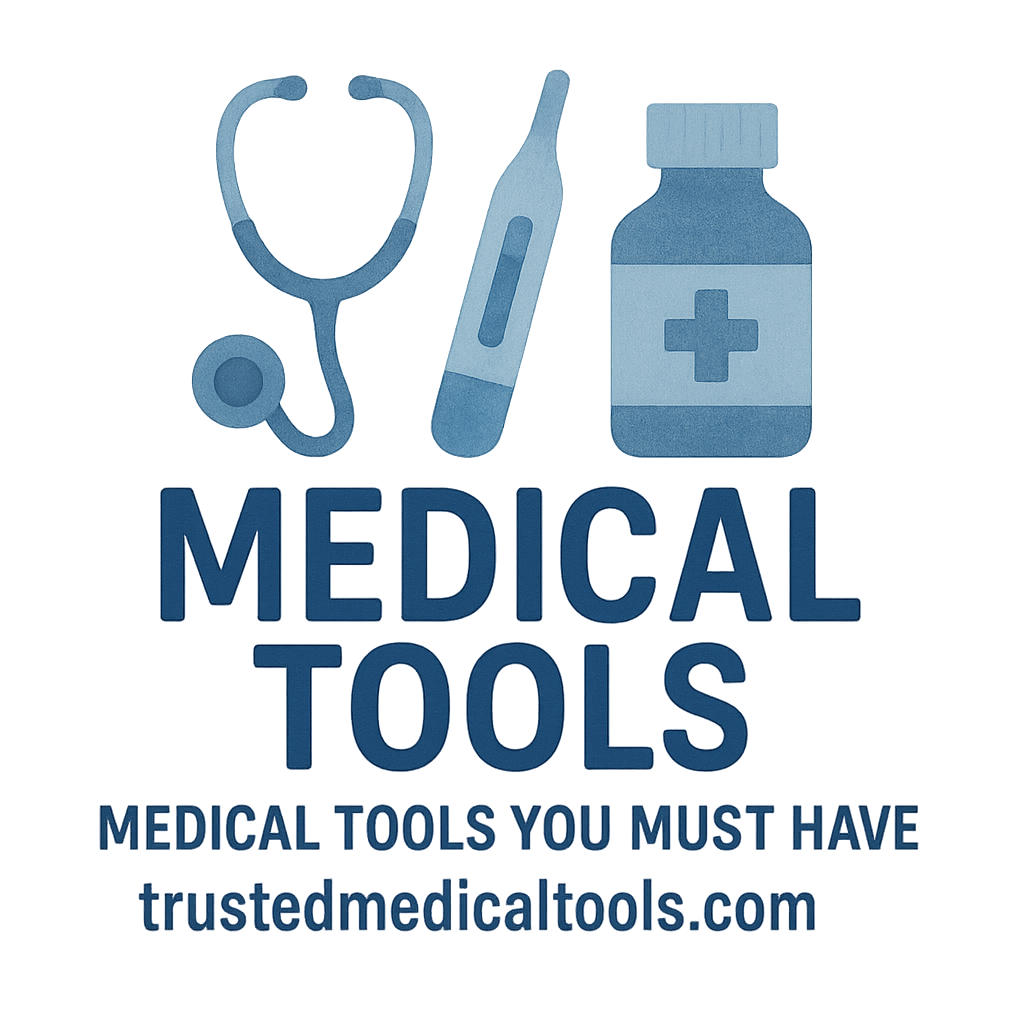Introduction
When it comes to taking care of our health at home, having the right medical tools is a game changer. Whether you’re monitoring your health regularly, taking care of a family member, or preparing for an emergency, the right tools can make all the difference. However, buying the wrong tools can lead to more harm than good. In this article, we’ll walk through the 7 mistakes to avoid when buying medical tools for home use. These tips will help ensure that your purchases are both safe and effective.
Mistake #1: Ignoring Quality Standards
The Role of Quality in Medical Tools
The quality of medical tools is paramount because it directly impacts your health and safety. Low-quality tools can malfunction or give inaccurate readings, leading to poor decisions about your health. For instance, a cheap thermometer might not give an accurate reading, which could lead you to misjudge a fever.
Recognizing Certified Products
Always look for medical tools that have been certified by health authorities or recognized organizations. Doctor-approved products often meet strict standards for safety and effectiveness. Tools like blood pressure monitors, thermometers, or pulse oximeters should have certifications that confirm their accuracy and reliability.
You can check for certifications like CE marks in Europe or FDA approval in the U.S. These marks indicate that the product has been evaluated for safety.
Where to Find Quality Medical Tools
One great place to buy quality medical tools for home use is trusted online platforms like Trusted Medical Tools. Their range of products includes doctor-approved and easy-to-use tools for home health care.
Mistake #2: Failing to Understand the Purpose of the Tool
Identifying the Right Tool for the Right Task
Before buying any medical tool, understand its specific purpose. For example, a home health care kit may include various tools such as thermometers, blood pressure monitors, and stethoscopes. However, each of these tools serves a different function, so knowing exactly what you need is crucial.
How to Match Tools to Specific Needs
If you’re buying a medical tool for family care, ask yourself whether it fits the purpose. Are you purchasing a tool for daily use, or is it for emergency situations? For example, if you need a tool for monitoring vital signs, a monitoring device might be the right choice. On the other hand, a first aid box would be better suited for handling accidents.
Medical Tools for Home Health Care
For comprehensive home care, always opt for a combination of basic and specialized tools. The DIY health check kits can help with regular monitoring, and an emergency first aid kit is a must-have for emergencies.
Mistake #3: Overlooking Ease of Use
User-Friendly Features to Look For
When choosing medical tools, it’s essential to consider how easy they are to use. After all, no one wants to struggle with a complicated device during a stressful moment. Look for devices with easy-to-use interfaces, clear instructions, and simple controls.
Examples of Easy-to-Use Medical Tools
For instance, a blood pressure monitor should be intuitive, with an automatic cuff inflation feature. Similarly, a thermometer should provide quick and clear readings. If the device includes extra features like memory storage for previous readings, make sure it’s simple to access and understand.
Why Simplicity Matters
Medical emergencies or daily health monitoring can already be stressful, so you don’t want your tools to add to the pressure. Opt for tools that are both effective and easy to operate, so you can focus on your health rather than figuring out how to use the device.

Mistake #4: Not Considering the Size and Storage Needs
Choosing Medical Tools Based on Space
Space is often limited in homes, and this is something to consider when purchasing medical tools. Large equipment like a home health monitor might not be suitable for smaller homes or apartments. Before purchasing, think about the space available for storage.
Portable vs. Stationary Equipment
Decide whether you need portable medical tools that can be easily moved or stationary ones that will stay in place. For example, a pulse oximeter is small, lightweight, and portable, making it a great choice for on-the-go use. Meanwhile, a blood pressure monitor might take up more space but provide more detailed readings.
Storage Tips for Home Health Care Tools
To store your medical tools efficiently, make sure to designate a specific area in your home. If you have a first aid box, keep it in an easily accessible place and stock it with essential items. Proper storage ensures you can quickly access tools when needed.
Mistake #5: Choosing Cheap, Low-Quality Products
The Cost-Quality Tradeoff
It’s tempting to buy cheaper products, but when it comes to medical tools, you often get what you pay for. Inexpensive tools can be unreliable and may not meet safety standards. Always choose quality over cost when it comes to your health.
How Low-Cost Tools Can Compromise Safety
A cheap thermometer may give you incorrect readings, which could lead to delayed treatment or even worsening symptoms. Instead, opt for high-quality, durable options. While these may cost more initially, they’ll save you money in the long run by providing accurate results and lasting longer.
Investing in Durable and Reliable Products
Investing in durable and doctor-approved tools ensures your family’s safety. High-quality products are often designed to last and come with customer support or warranties. Explore options at reputable sites like Trusted Medical Tools, which offers a range of certified products.
Mistake #6: Not Researching the Brand and Reviews
Why Brand Reputation Matters
The brand behind a medical tool speaks volumes about its quality. Trusted brands usually have a history of producing reliable and effective products. Take the time to research the brand’s reputation before making a purchase.
How to Use Reviews Effectively
Online reviews can offer great insights into the effectiveness and reliability of a product. Look for reviews from people who have similar health needs to yours. Positive reviews often indicate that the tool is both efficient and easy to use.
Trusted Brands in Home Medical Tools
When shopping for health equipment online, consider reputable brands with solid customer feedback. Trusted names like Omron, Withings, and Braun consistently deliver quality products that you can rely on for accurate readings and long-term use.
Mistake #7: Failing to Buy Essential Tools for Home Care
Must-Have Medical Tools for Every Household
Every home should be equipped with essential medical tools. A basic first aid kit, a thermometer, a blood pressure monitor, and a pulse oximeter are among the most important items for family health care. Having these tools on hand ensures that you are prepared for common health issues or emergencies.
Essential Tools for Health Monitoring
Monitoring devices such as heart rate monitors and blood pressure cuffs are vital for keeping track of your health. These tools allow you to catch potential health issues early, making it easier to seek medical attention when necessary.
First Aid Tools and Family Care Products
In addition to health monitoring, it’s crucial to have first aid supplies like bandages, antiseptics, and gloves. These items are essential for treating minor injuries, cuts, or burns that can happen at home.
Conclusion
Choosing the right medical tools for home use can be a daunting task, but avoiding these common mistakes will help you make informed decisions. Remember to prioritize quality, ease of use, and the specific needs of your household. By investing in the right tools, you’ll ensure your home is equipped to handle any health-related issues that arise.
Frequently Asked Questions (FAQs)
- What are the most important medical tools for home use?
- Essential tools include a thermometer, blood pressure monitor, pulse oximeter, and first aid kit.
- How do I ensure I’m purchasing quality medical tools?
- Look for certifications, research reputable brands, and read customer reviews to ensure product quality.
- Can I trust online reviews when buying medical tools?
- Yes, but be sure to check reviews from verified users and focus on those with relevant experiences.
- How can I store medical tools effectively at home?
- Designate a specific space for your tools, and keep emergency items like first aid boxes within easy reach.
- Are cheaper medical tools always bad?
- Not necessarily, but cheaper options may not be as durable or accurate. It’s often better to invest in higher-quality tools.
- What are the must-have medical tools for emergency situations?
- A first aid box, blood pressure monitor, and thermometer are crucial for emergencies.
- Where can I find trusted medical tools for home use?
- You can visit Trusted Medical Tools for a wide range of high-quality, doctor-approved products for home health care.


